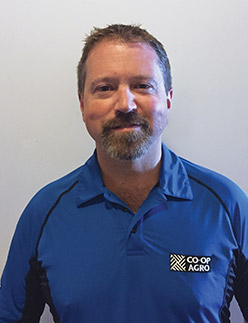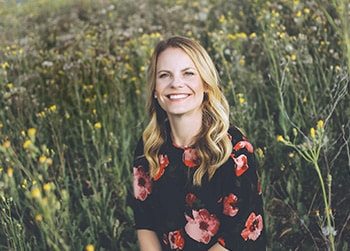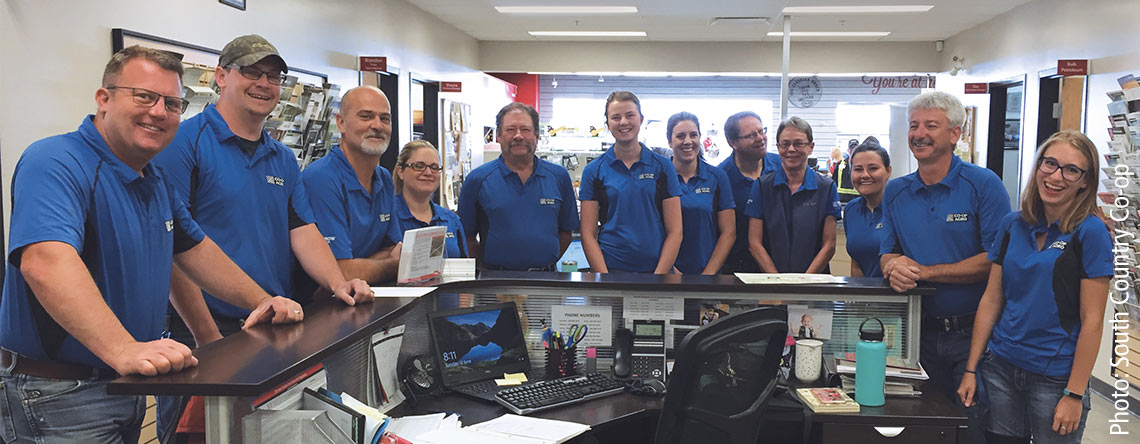Agri-retailers can help break the stigma surrounding mental health.
The call to action for the Do More Agriculture Foundation (Do More Ag), a not-for-profit initiative that aims to remove the stigma of mental health issues and get people talking is, “Talk More, Ask More and Listen More.”
Do More Ag has set out to change the culture in agriculture to one where all producers are empowered, supported and encouraged to take care of their mental well-being. The foundation launched in January of this year to a standing room only crowd at FarmTech in Edmonton, Alta.
“From the onset, even starting the conversations about mental health, it was almost like there was a crack in the door – we opened it and ‘wow,’” says Lesley Kelly, one of the four founders of Do More Ag. “It has been overwhelming to see the conversations online, at events and in the field about mental health; why we need to put it on the agenda and the importance of why we need to do it now.”
Joining the Conversation
Recognizing the importance of mental health in ag, the Co-operative Retailing System (CRS) is one organization that has put it on their agenda. Through a partnership with Do More Ag, they plan to roll-out digital toolkits and materials to encourage dialogue throughout the CRS and with their farm customers.

Mike May, agro centre manager at the South Country Co-op in Medicine Hat, Alta., sees this move as a “win” for everyone involved and is excited to see the positive effects as the program develops.
“One of the reasons I love working for the Co-op is they believe in supporting communities in all aspects. There’s been a stigma associated with mental health for far too many years and it’s time to bring this to the forefront – ag is no different – we’re not immune to that,” he says. “Retailers need to acknowledge that mental health is an important topic and we need to support it in any way we can.”
Supporting Staff and Customers
With a “we’re all in this together” attitude, May sees the need for support on both sides of the counter. Especially during the busy season – as his customers’ stress levels go up, so do his staff’s.
“Seeding and harvesting are both very stressful – you’re relying on the weather, you’re putting in long hours without a lot of sleep, often worrying about cash-flow. You’re alone a lot, not seeing your family for extended periods of time. These things happen to the employees at the store as well,” says May.
“We’re putting in a lot of long hours with little sleep. We’re much busier so everyone gets a little more stressed. I have a few employees here who will work 80-hour weeks for a couple of months and they don’t see their families a whole lot,” he says.
Kelly recommends ag retailers help their staff and customers by making mental health part of everyday conversations and by watching for signs that someone is struggling, such as a change in behavior or personality. Someone who is usually talkative and expressive might become quiet and withdrawn, she explains.
For his part, May makes sure to check-in frequently with staff, listening for cues that an employee needs help. If he senses that normal venting is escalating into something more, he takes action. “As leaders, we must be aware of when we need to do more,” he says.
Retailers need to acknowledge that mental health is an important topic and we need to support it in any way we can.
Heading in the Right Direction
Recognizing that it can be difficult for an employee or a customer to reach out, May hopes CRS’s partnership with Do More Ag will open lines of communication and remove the stigma around asking for help.
“It doesn’t have to be like it was 50 years ago, where people felt they had to keep their struggles internal; it’s okay to come out and ask for help now,” says May. “That’s something that just didn’t happen years ago – you felt like you just couldn’t talk about these kinds of things. I think society is getting much better at realizing that it’s an issue.
“Are we where we need to be? No, not by any means are we there yet, but I think we’re taking steps in the right direction with these types of programs.”
When it comes to creating a workplace environment that welcomes mental health conversations, May’s advice to others echoes Do More Ag’s – talk more, ask more and listen more.
 Three Ways to Change A Life
Three Ways to Change A Life
Lesley Kelly shares tips on using Do More Ag’s calls-to-action to change a life through the power of conversation.
Talk More: Talk about mental health with your friends, family and coworkers. Share your own experiences or say why mental health matters.
Ask More: Ask questions about mental health and mental illness. Don’t be afraid to reach out and ask others how they are doing in a meaningful way.
Listen More: Listen to understand, rather than listening to respond. You don’t have to know the answers – sometimes all people need is to be heard.
Visit domore.ag/resources for a list of national and provincial mental health resources, including crisis lines and support services.
Related Articles
- AI & Ag A viewpoint on how artificial intelligence can positively impact the agricultural sector. By Andrew Joseph, Editor When it comes to AI, aka artificial intelligence, people either know all about it or they don’t. ...
- Canadian fertilizer and the new insect and lightning alternatives Could lightning-derived technology or cricket frass be a new fertilizer option for manufacturers? By Andrew Joseph, Editor It’s spring, a time when crop farmers and retailers think profoundly about fertilizer—the...
- Being level-headed about shipping over water Too much and too little water in our waterways is causing economic issues regarding how we get products in and out of Canada. This article examines the St. Lawrence Seaway, the Great Lakes, the Mississippi River, and...
- Coal as cow feed? Researchers turn coal into an edible protein as part of cattle feed—is it a diamond in the rough? By Andrew Joseph, Editor Centuries before coal was used to heat homes, be they castles or peasant huts, it was use...
- Myrna Grahn is our new Executive Director We are excited to announce the appointment of Myrna Grahn as the new Executive Director of the Canadian Association of Agri-Retailers (CAAR). She stepped into her new role as of March 25, 2024. Myrna brings a wea...
 How to resolve AdBlock issue?
How to resolve AdBlock issue? 
Join the discussion...
You must be logged in as a CAAR member to comment.
Report
My comments